August 2025
DIF Website | DIF Mailing Lists | Meeting Recording Archive
Table of contents
- Decentralized Identity Foundation News; 2. Working Group Updates; 3. Special Interest Group Updates; 4. User Group Updates; 5. Announcements; 6. Get involved! Join DIF
🚀 Decentralized Identity Foundation News
DIF Partners with MIT's Project NANDA for Packed Event
DIF partnered with MIT's Project NANDA for a well-attended event at Circuit Launch on July 18, 2025, where Ramesh Raskar shared his vision for architecting an Internet of AI Agents. DIF Technical Steering Committee chair Andor Kesselman served as co-host, with robust discussion focusing on the relevance of decentralized identity for the agentic web.
During and after the event, discussion covered how DIF's decentralized identity standards can provide the cryptographic foundation for Project NANDA's agentic web, enabling persistent, verifiable identifiers for AI agents operating autonomously across organizational boundaries. This collaboration addresses the critical challenge of maintaining human oversight and trust as AI systems gain greater agency, ensuring that robust identity infrastructure underpins the future of AI collaboration.
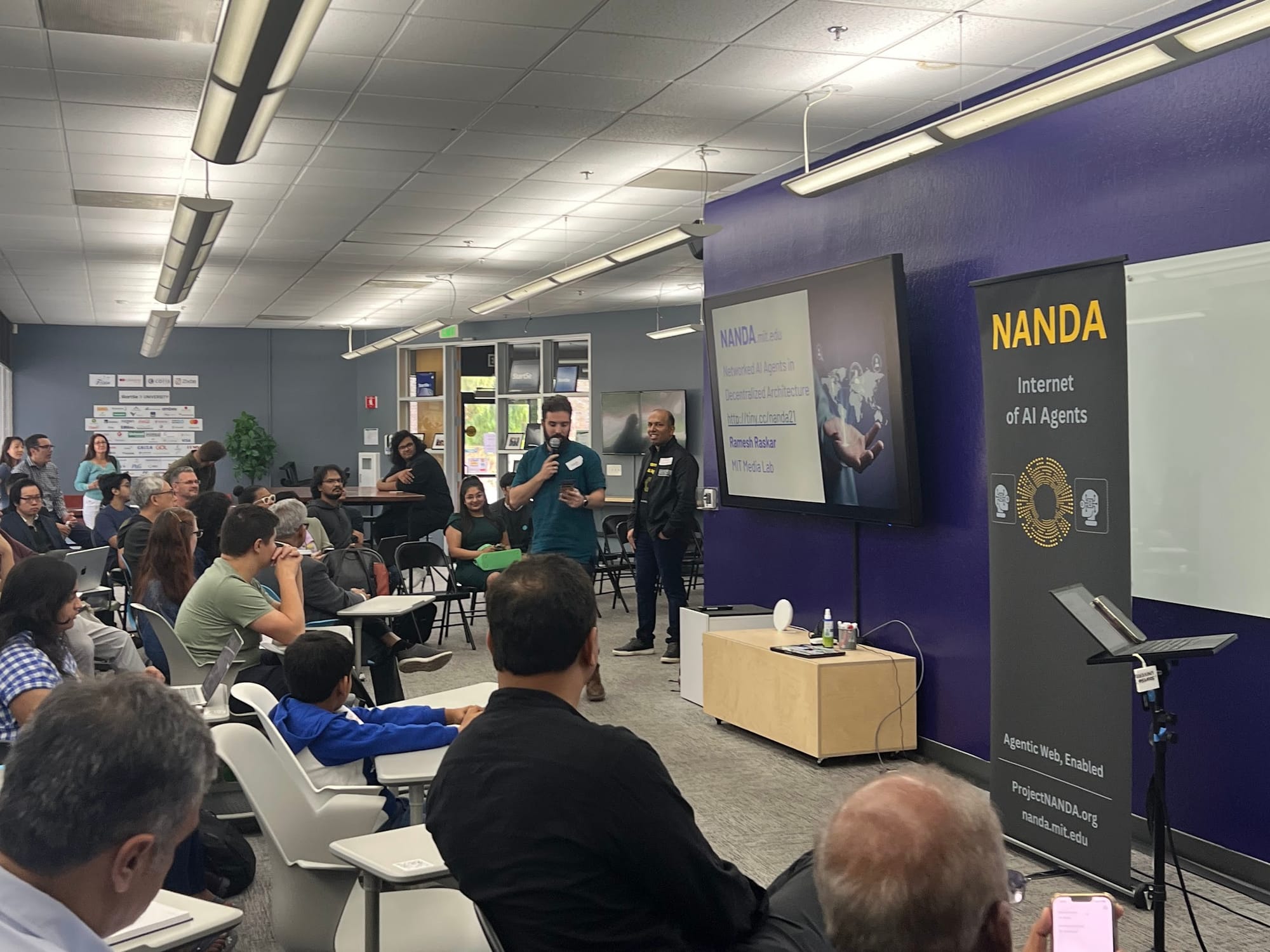
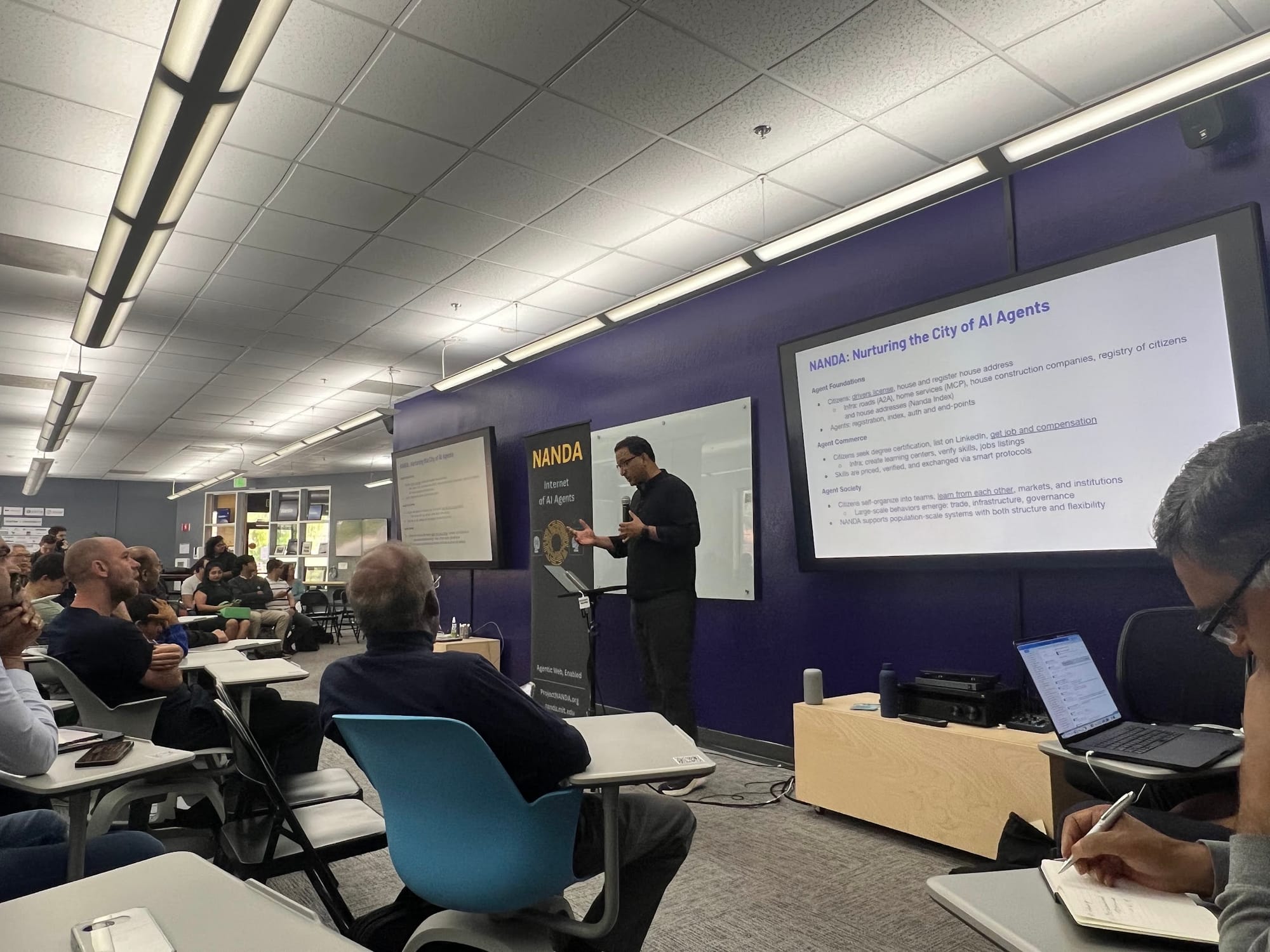
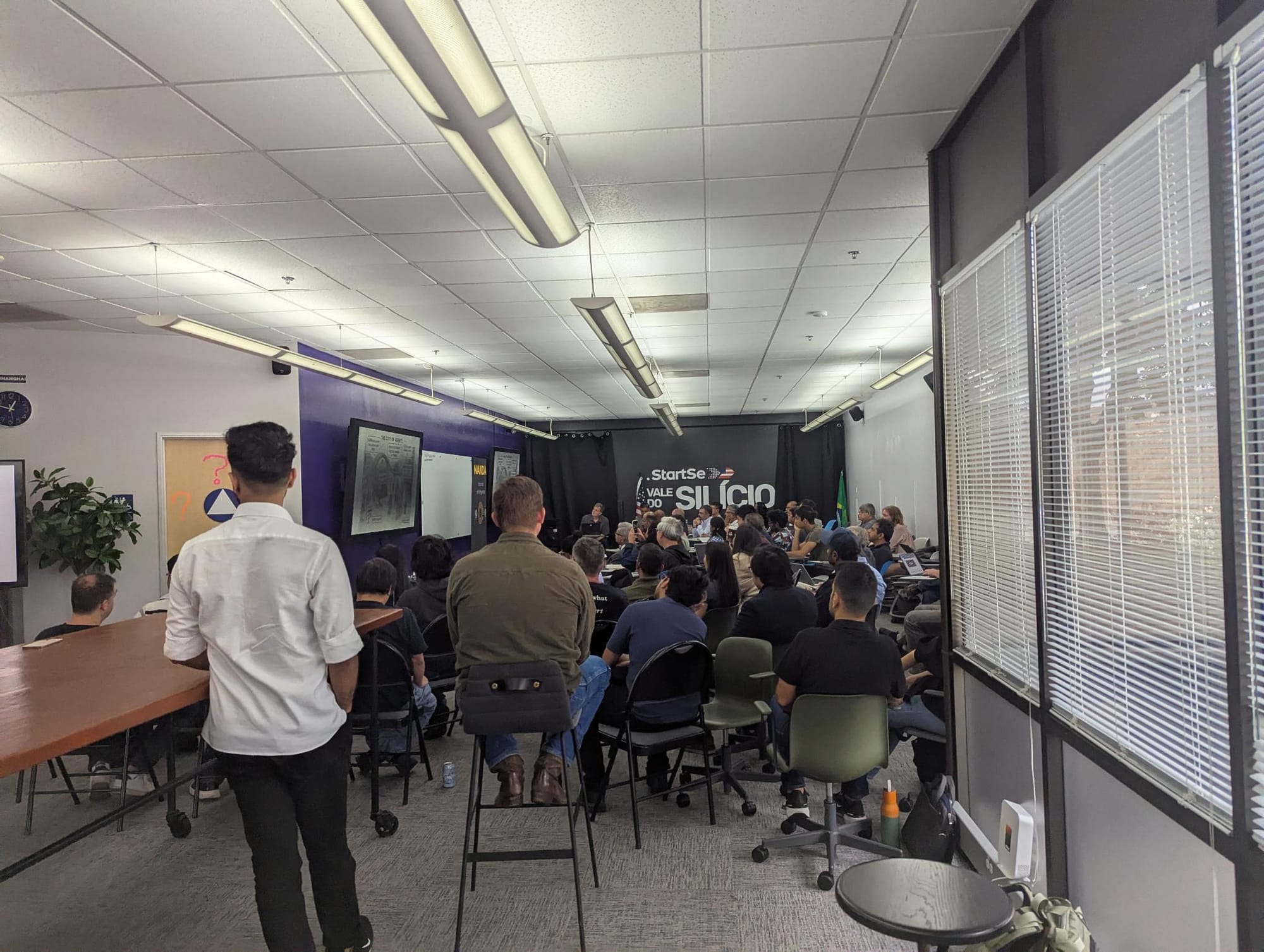
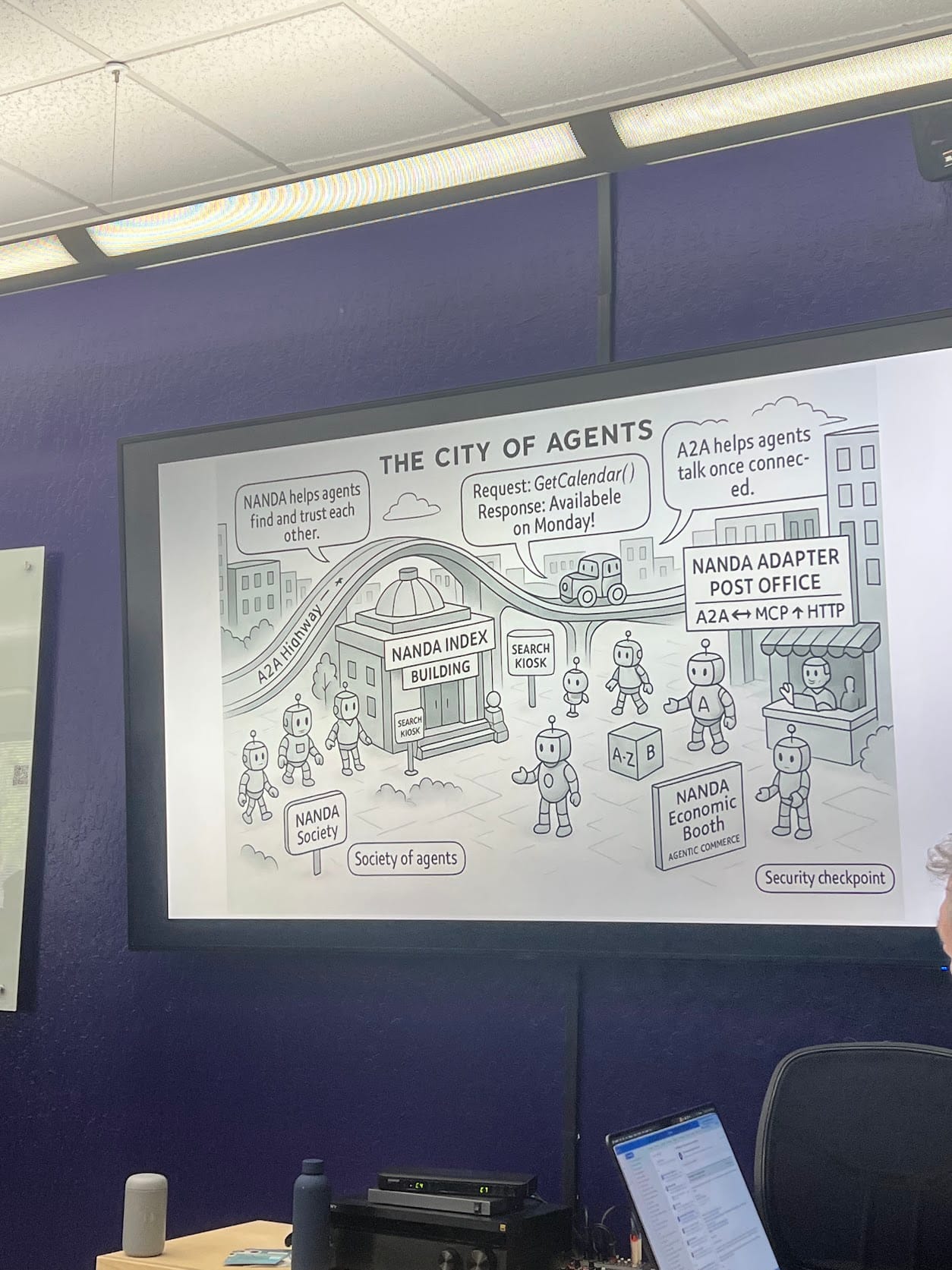
DIF co-hosted event with Project NANDA in Mountain View, CA on July 18, 2025
Global Digital Collaboration Conference in Geneva
DIF staff and community had a strong presence at the Global Digital Collaboration (GDC) conference in Geneva on July 1-2, 2025, with our community delivering key presentations across multiple tracks. Highlights included our opening session on Agentic AI and Digital ID, addressing critical trust challenges as AI agents become more autonomous. Additional DIF-led sessions covered identity foundations for Industry 4.0 transformation, decentralized identifiers for global interoperability, and digital human rights.
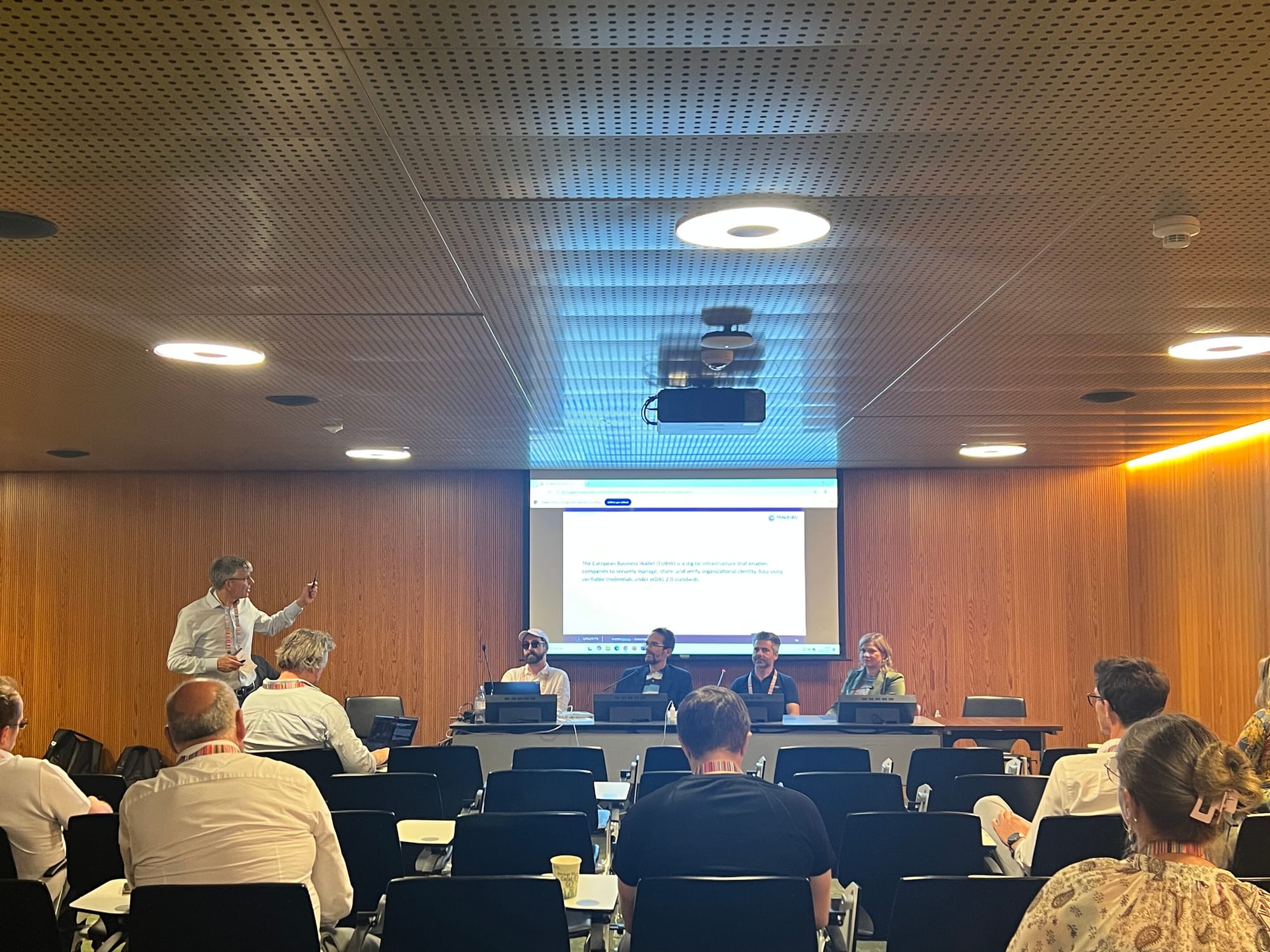
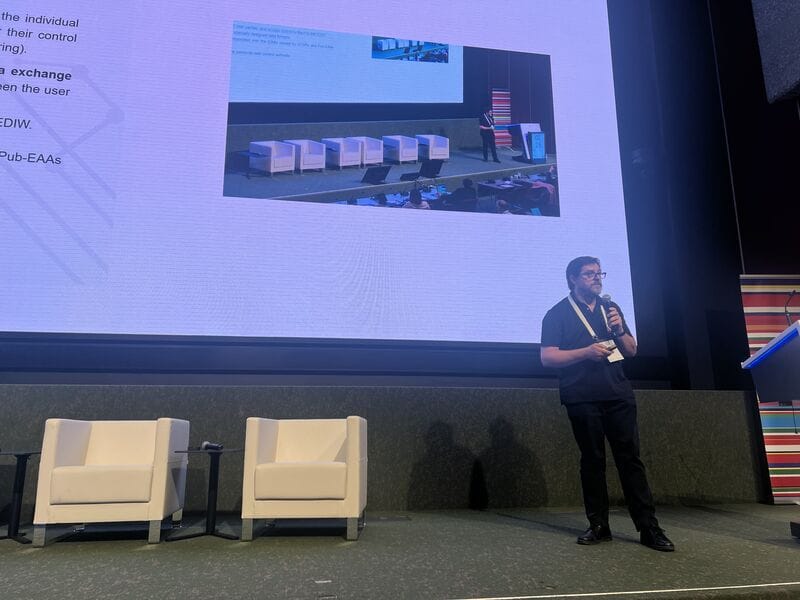
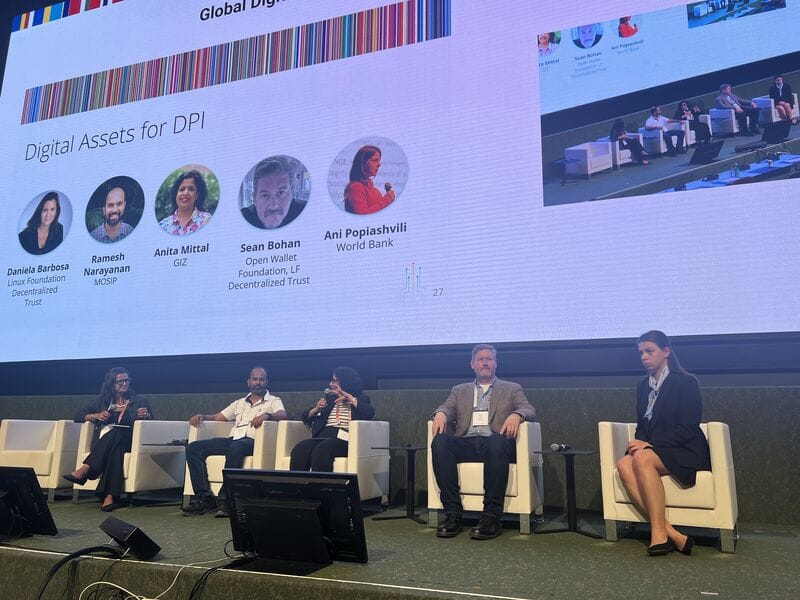
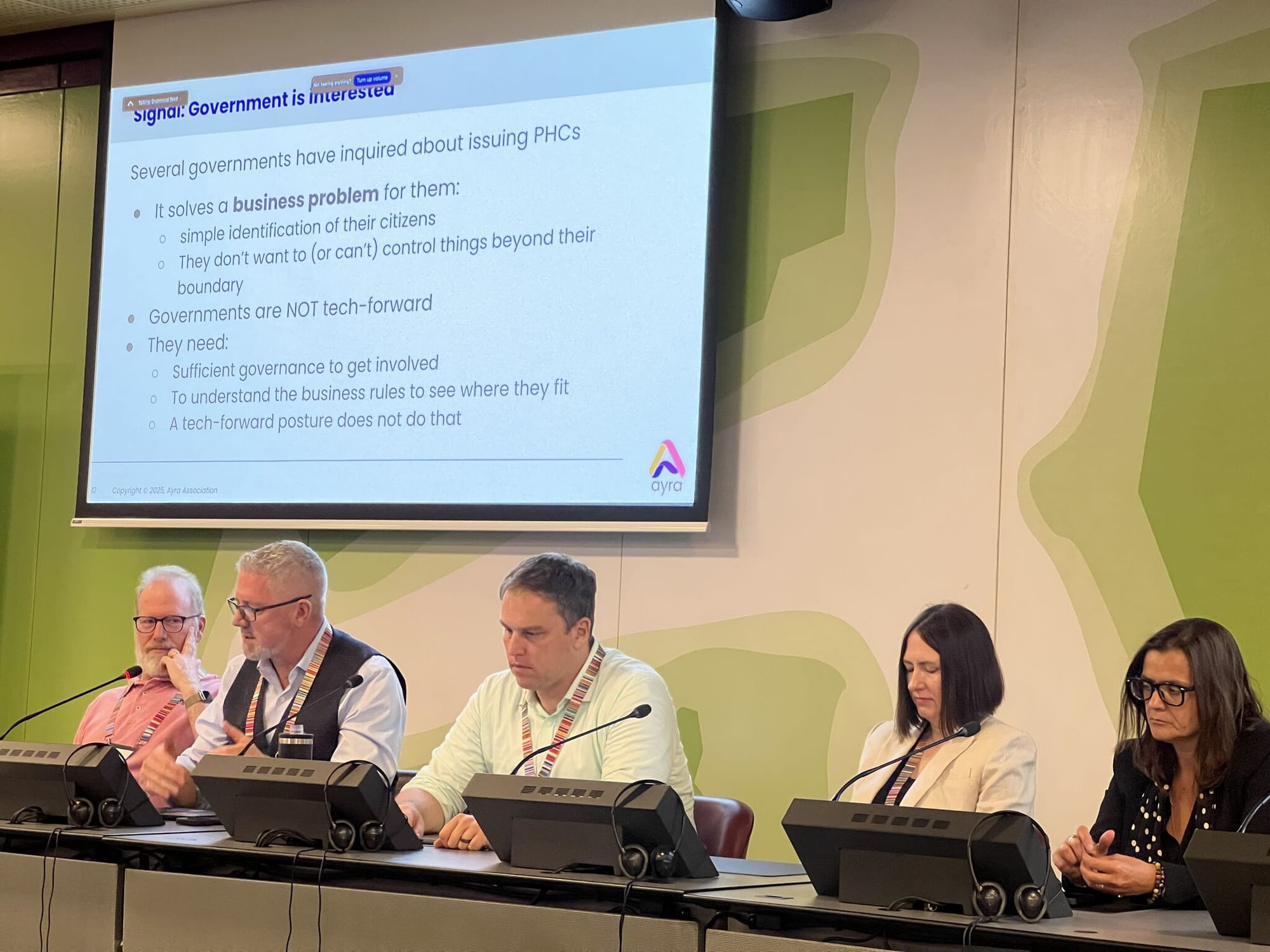
DIF community at GDC
The conference demonstrated the maturity of decentralized identity solutions, with presentations spanning from privacy-enhancing technologies and trust management for wallets to enterprise blockchain implementations and regulatory compliance frameworks. The diverse roster of sessions highlighted how decentralized identity is being deployed across sectors—from government digital infrastructure projects to enterprise security applications—while fostering meaningful dialogue between technologists, policymakers, and standards bodies globally.
Visit the GDC website for session videos and stay tuned for the upcoming Book of Proceedings featuring detailed insights from all presentations.
DIF Labs Beta Cohort 2 Projects Launch
Following the selection process completed in June, DIF Labs Beta Cohort 2 is now in full swing with three innovative projects that push the boundaries of decentralized identity technology. The selected projects focus on:
- Privacy-preserving verifiable credentials using advanced cryptographic techniques
- Anonymous multi-signature protocols for group credentials
- Novel approaches to privacy-preserving revocation mechanisms.
Each project team is receiving dedicated mentorship from DIF's expert community and is committed to delivering open-source implementations that will benefit the entire ecosystem. The projects are scheduled to run through September 2025, with regular check-ins and a final showcase event planned.
See the DIF Labs web site for more information.
DIF Showcases Decentralized Identity for Seamless Travel Experience at HITEC Conference
DIF presented at HITEC 2025 in Indianapolis, where hospitality technology veterans mapped out how self-sovereign identity can align data privacy with friction-free travel experiences. The session featured Douglas Rice (Managing Director, Hospitality Technology Network), Nick Price (former CIO, Mandarin Oriental Hotel Group & citizenM), Kim Hamilton Duffy (DIF Executive Director), and Bill Carroll (CEO, Marketing Economics; retired Cornell professor). The speakers demonstrated how traveler-controlled digital wallets can enable seamless journeys—from AI-powered trip planning with auto-completing visa forms to face-scan boarding, NFC room keys, and verified guest reviews.
The presentation highlighted real-world momentum with examples including EU "Seamless Travel" pilots across 27 member states, Cathay Pacific's Hong Kong-Tokyo trial packing seven credential types into passenger wallets, and Bhutan's nationwide digital identity program built on decentralized identifiers. The speakers emphasized that centralized data silos are incompatible with the hyper-personalization guests demand, while self-sovereign identity delivers immediate benefits including reduced breach risks, lower cyber-insurance premiums, and improved revenue through verified, up-to-date traveler data.
See Alex Bainbridge's article for a detailed recap, as well as the recording and presentation deck. Additional coverage available at PhocusWire.



DIF H&T team at HITEC conference
🛠️ Working Group Updates
Browse our active working groups here
Creator Assertions Working Group
The Creator Assertions Working Group made significant progress on terminology standardization and integration with broader credential frameworks. A key development was the group's decision to transition from "identity assertions" to "attribution assertions," recognizing that "attribution" better captures the essence of content creation claims while being less controversial in industry discussions. The team continued advancing their integration with the C2PA ecosystem and made substantial progress on metadata assertion standards. Work also progressed on media identifier systems and the development of flexible metadata frameworks that can accommodate various content types and use cases.
Applied Crypto Working Group
The BBS+ team achieved significant milestones in pseudonym generation and post-quantum security considerations. Key developments included the finalization of polynomial evaluation methods for pseudonym generation, addressing potential security vulnerabilities from adversarial users through more robust cryptographic approaches. The team made substantial progress on test vector development for the 0.9 draft release and continued coordination with IETF standardization efforts. Discussions also covered the efficiency implications of different cryptographic commitment schemes and their practical applications in large-scale deployments.
DID Methods Working Group
The DID Methods Working Group focused intensively on W3C standardization efforts and refining the evaluation process for DIF-recommended DID methods. Significant progress was made on the proposed W3C DID Methods Working Group charter, with the team addressing concerns about blockchain inclusion and standardization scope. The group refined evaluation criteria for DID method proposals, emphasizing the need for multiple implementations, significant deployments, and clear compliance with DID traits. Work continued on balancing objective criteria with expert evaluation to ensure high-quality recommendations while maintaining transparency in the assessment process.
Identifiers and Discovery Working Group
Multiple work streams advanced significantly this month. The DID:webvh team made substantial progress toward their 1.0 specification release, with multiple implementations now passing comprehensive test suites and performance analysis demonstrating efficient handling of DID updates. The DID Traits team prepared for their 1.0 release, focusing on key validation capabilities and long-term availability requirements. The group also explored applications in software supply chain contexts and examined compliance with emerging regulations like the EU's Cyber Resilience Act, demonstrating the practical relevance of decentralized identifiers in enterprise environments.
DIDComm Working Group
The DIDComm Working Group advanced work on binary encoding support through the CBOR implementation, positioning it as an optional feature for version 2.2 with potential to become the default in future major releases. The team addressed important technical challenges around message encoding detection, MIME type handling, and implementation compatibility. Significant discussions covered privacy considerations and "phone home" concerns in credential verification systems, with the group exploring how verifiable credentials can be presented without requiring direct communication with issuers. The group also examined DIDComm applications in AI agent-to-agent communications.
Claims & Credentials Working Group
The Credential Schemas team launched their community schemas initiative, creating a framework for organizations to contribute verifiable credential schemas to a shared repository for potential standardization. Significant progress was made on aligning their basic person schema with schema.org standards while maintaining compatibility with existing frameworks like OIDC and UK ID assurance. Key developments included extending postal address schemas for banking KYC requirements, refining terminology around personhood verification credentials, and establishing processes for schema synchronization between repositories. The team also began exploring employment credentials and anti-money laundering certifications as future development priorities.
Hospitality & Travel Working Group
The newly launched Hospitality & Travel Working Group hit the ground running with substantial progress on the HAT Pro specification. The team developed comprehensive schemas for food preferences, dietary restrictions, and accessibility requirements, utilizing graph-based models to avoid data duplication and improve cross-referencing capabilities. Key developments included the creation of UML models and JSON schemas for complex preference structures, exploration of AI-assisted data input to simplify user experiences, and the establishment of engagement processes for subject matter experts across various travel sectors. The group is preparing for major presentations at industry events and has launched a dedicated website to showcase their work.
DIF Labs Working Group
DIF Labs Beta Cohort 2 projects are now in active development phase, with three selected projects working on cutting-edge privacy-preserving technologies. The projects focus on legally binding verifiable credentials using Qualified Electronic Signatures (QES), comparative analysis of privacy-preserving revocation mechanisms, and anonymous multi-signature verifiable credentials. Each project team is receiving dedicated mentorship from DIF's expert community and is committed to delivering open-source implementations that will advance the broader decentralized identity ecosystem. The program continues to demonstrate the value of focused, mentored development in advancing the state of the art.
🌎 DIF Special Interest Group Updates
Browse our special interest groups here
DIF Africa SIG
The Africa SIG featured an impressive deep-dive presentation on Ethiopia's national digital identity system, Faida, and its associated digital credential platform FaidaPass. Representatives from Ethiopia's national ID system provided detailed insights into the architecture, features, and implementation of this groundbreaking system, which serves as one of the first full-scale standards-compliant deployments globally. The presentation highlighted the use of decentralized verification models, biometric authentication capabilities, and self-sovereign identity principles, while addressing innovative solutions for non-smartphone users and future monetization strategies. The session demonstrated Africa's leadership in practical digital identity implementation.
APAC/ASEAN Discussion Group
The APAC/ASEAN group hosted comprehensive presentations on digital identity solutions in Australia, featuring True Vault's approach to creating a decentralized identity ecosystem. Discussions covered recent regulatory changes including the Digital Identity Act, international standards alignment, and the challenges of achieving interoperability across different jurisdictions. The group explored the evolution from manual to digital identity verification methods and examined the potential for global expansion of digital identity solutions while addressing privacy concerns and user control requirements. The session highlighted Australia's voluntary approach to digital identity and its implications for regional adoption.
DIF Japan SIG
The Japan SIG focused on recent developments in DID and AI agent authentication, with participants sharing updates on their organizations' initiatives and emerging challenges. The group explored the intersection of decentralized identity with AI systems and examined potential applications across various sectors. Key discussions included the unique requirements for AI agent identity management and the challenges of implementing decentralized identity principles in automated systems. The group also considered future meeting formats and potential offline events to enhance community engagement and collaboration.
DIF Hospitality & Travel SIG
The Hospitality & Travel SIG hosted presentations highlighting decentralized identity adoption in the travel industry. Key sessions included discussions with Microsoft on AI-driven cybersecurity solutions for hospitality, analysis of Apple's digital identity announcements and their implications for travel, and exploration of AI agents' potential to revolutionize customer interactions in travel and hospitality. The group examined both opportunities and challenges in implementing decentralized identity solutions across various travel scenarios, from border crossing to personalized service delivery.
📖 DIF User Group Updates
DIDComm User Group
The DIDComm User Group explored practical implementations and emerging applications of the DIDComm protocol, with particular focus on AI agent communications. Key discussions included demonstrations of new systems and their communication protocols, exploration of generative AI communication frameworks and their similarities to DIDComm approaches, and examination of security considerations for AI agent interactions.
📢 Announcements at DIF
H&T Working Group Launches Blog
As Hospitality & Travel activity increases at DIF, Autoura CEO Alex Bainbridge has launched a special H&T focused blog. We encourage you to visit and subscribe for updates.
🆔 Get involved! Join DIF
If you would like to get in touch with us or become a member of the DIF community, please visit our website or follow our channels:
| 🐦 | Follow us on Twitter/X |
| 💻 | Join us on GitHub |
| 📺 | Subscribe on YouTube |
| 🔍 | Read the DIF blog |
New Member Orientations
If you are new to DIF, join us for our upcoming new member orientations. Find more information on DIF's Slack or contact us at community@identity.foundation if you need more information.
